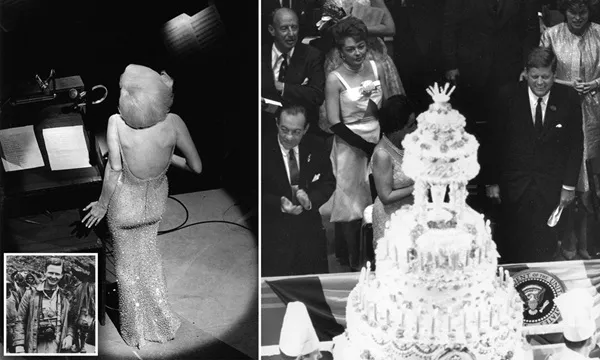The history of the United States is a mosaic of diverse experiences, achievements, and challenges. Each date on the calendar holds a wealth of stories that contribute to the nation’s narrative. May 19 is no exception, bearing witness to pivotal moments that have shaped American society, politics, culture, and identity. This article delves into the historical events of May 19 throughout the annals of American history, highlighting key occurrences that continue to resonate today.
1643: Anne Hutchinson Banished from Massachusetts Bay Colony
On May 19, 1643, Anne Hutchinson, a prominent religious dissenter, was banished from the Massachusetts Bay Colony. Hutchinson’s unorthodox views on theology and her leadership role in women’s religious gatherings had sparked controversy and opposition from the colony’s Puritan authorities. Her banishment, along with other dissenters like Roger Williams, underscored the tensions between religious conformity and individual freedom of conscience in colonial America. Hutchinson’s legacy as a symbol of religious liberty and women’s rights endures in American history.
1856: Senator Charles Sumner Assaulted in Congress
On May 19, 1856, Senator Charles Sumner of Massachusetts was brutally assaulted by Representative Preston Brooks of South Carolina on the floor of the United States Senate. The attack came in retaliation for Sumner’s impassioned anti-slavery speech, known as the “Crime Against Kansas,” in which he denounced the institution of slavery and its supporters. Sumner’s beating, which left him severely injured, highlighted the deep divisions over slavery that plagued the nation in the years leading up to the Civil War. The incident underscored the breakdown of civility in American politics and the increasing polarization between North and South.
1864: Battle of Spotsylvania Court House
The Battle of Spotsylvania Court House, part of the Overland Campaign during the Civil War, raged from May 8 to May 21, 1864. On May 19, Union forces under the command of General Ulysses S. Grant clashed with Confederate troops led by General Robert E. Lee. The battle, characterized by its ferocity and high casualties, epitomized the brutal nature of the Civil War’s Eastern Theater. Although inconclusive in terms of strategic objectives, the Battle of Spotsylvania Court House demonstrated the tenacity of both Union and Confederate soldiers and foreshadowed the prolonged and costly nature of the conflict.
1921: Emergency Quota Act Signed into Law
On May 19, 1921, President Warren G. Harding signed the Emergency Quota Act, also known as the Johnson-Reed Act, into law. The legislation imposed strict immigration quotas based on national origin, marking a significant shift in American immigration policy. Designed to restrict the influx of immigrants, particularly from Southern and Eastern Europe, the Emergency Quota Act reflected growing nativist sentiments and fears of cultural dilution among certain segments of American society. The law had far-reaching consequences for immigration patterns and contributed to the shaping of American demographics in the 20th century.
1962: Marilyn Monroe Sings “Happy Birthday, Mr. President”
On May 19, 1962, Marilyn Monroe delivered her iconic performance of “Happy Birthday, Mr. President” to John F. Kennedy at Madison Square Garden. This momentous event, occurring during Kennedy’s presidency, captivated the nation and symbolized the intersection of politics, celebrity, and popular culture in mid-20th-century America. Monroe’s sultry rendition of the song, coupled with her intimate relationship with Kennedy, added a layer of intrigue to the performance, which has since become legendary in American history.
1992: Los Angeles Riots
On May 19, 1992, the city of Los Angeles erupted into violence following the acquittal of four police officers in the beating of Rodney King, an African American motorist. The acquittal, which was captured on videotape and widely broadcast, sparked outrage and protests throughout the city. The unrest, characterized by widespread looting, arson, and clashes with law enforcement, lasted for six days and resulted in over 60 deaths and thousands of injuries. The Los Angeles Riots exposed deep-seated racial tensions and socioeconomic disparities in America’s urban centers, prompting soul-searching and calls for reform in law enforcement and race relations.
2004: Massachusetts Legalizes Same-Sex Marriage
On May 19, 2004, Massachusetts became the first state in the United States to legalize same-sex marriage following a ruling by the Massachusetts Supreme Judicial Court. The landmark decision, in the case of Goodridge v. Department of Public Health, recognized the constitutional right of same-sex couples to marry under state law. Massachusetts’ embrace of marriage equality marked a significant milestone in the LGBTQ+ rights movement and paved the way for similar legal and social advancements nationwide.
Conclusion
May 19 serves as a poignant reminder of the breadth and depth of American history, encompassing moments of triumph and tragedy, progress and regression. From colonial conflicts and revolutionary struggles to civil rights movements and societal upheavals, the events of this date reflect the complexities of the American experience. As we reflect on May 19 in American history, we are confronted with the enduring legacy of past actions and the ongoing quest for justice, equality, and liberty for all.

